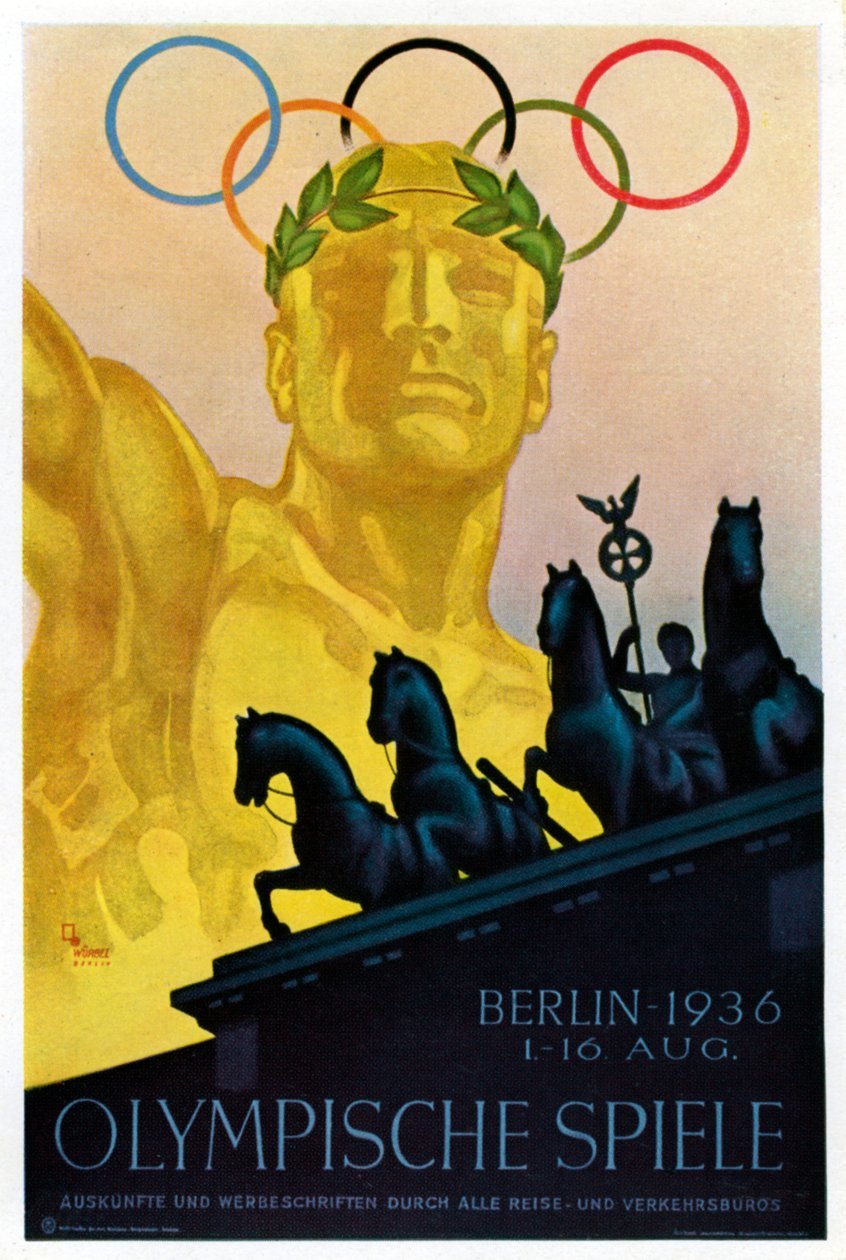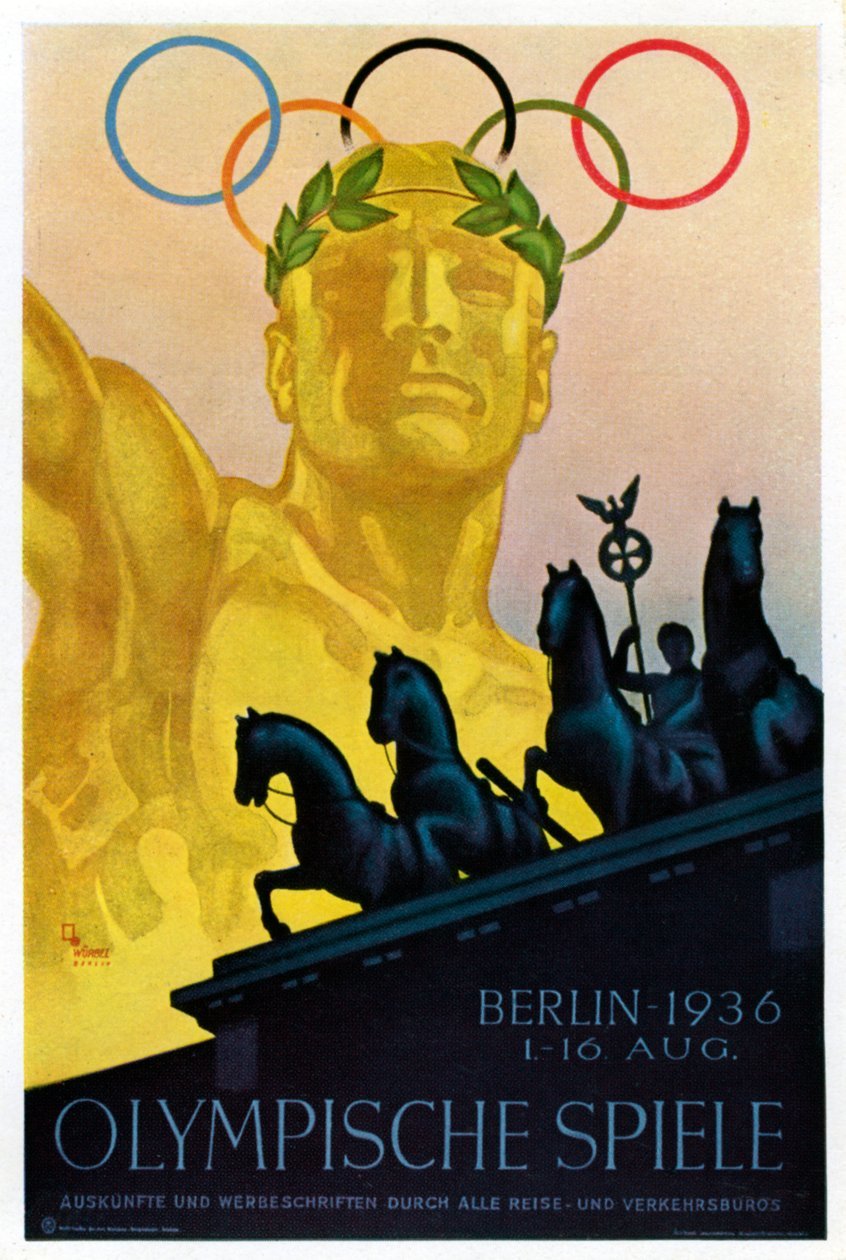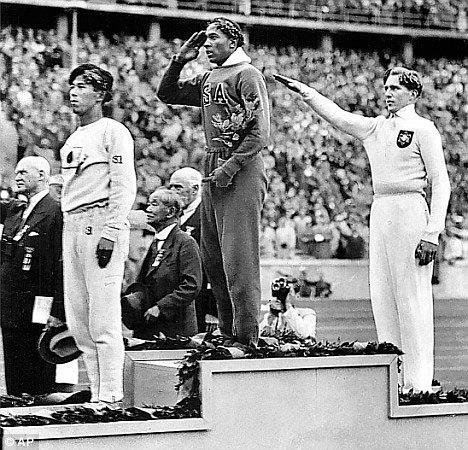Cette cache a été posée à l'occasion du Méga Event « Les Geolympiques » (GCA8FBT) organisé à Meaux par l'association des Géofranciliens.
Pour cette série nous indiquons deux parkings gratuits, un au nord et un au sud, en WP
Pour réaliser l'intégralité de la série bleue , le parcours fait 10 kilomètres.
Attention : ne pas se baser sur les numéros des caches qui ne suivent pas un parcours particulier.
La cache ne se trouve pas aux coordonnées indiquées.
Jeux olympiques de Berlin 1936

Les Jeux olympiques d'été de 1936, Jeux de la XIe olympiade de l'ère moderne, sont célébrés à Berlin en Allemagne du 1er au 16 août 1936. La capitale allemande est désignée pour la seconde fois comme pays organisateur, mais lesLes Jeux olympiques de 1916 ont été annulés en raison de la Premiére Guerre mondiale.
Dans le contexte du moment, les JO de Berlin prennent vite une signification très politique, même si personne ne peut encore prévoir les changements politiques qui vont survenir enAllemagne quand, en 1931, le CIO confie à Berlin et à la République de Weimar l'organisation des jeux. Après l'instauration du régime nazi en 1933, plusieurs pays demandent le boycott de ces jeux olympiques et organisent des jeux alternatifs, les Olympiades populaires à Barcelone, dont le déclenchement de la guerre d'Espagne la veille empêchent l'inauguration. Les Jeux de Berlin se déroulent dans une atmosphère de xénophobie et d'antisémitisme, Adolf Hitler voulant se servir de cet événement pour faire la propagande du nazisme et la promotion de l'idéologie de la supériorité de la race aryenne, notamment à travers le documentaire Les Dieux du stade de Leni Riefenstahl. Ces jeux sont souvent cités comme exemple de « blanchiment par le sport » organisé par un gouvernement autoritaire et belliqueux.
Sur les 49 nations et 3 967 athlètes (dont 335 femmes) qui prennent part à 129 épreuves dans 19 sports, l'Allemagne est le pays le plus médaillé.
Dans le contexte particulier des « Jeux nazis », les quatre médailles d'or remportées par l'athlète noir américain XXXXX XXXXX en sprint et saut en longueur représentent un important symbole dans l'histoire des Jeux olympiques modernes. Mais l'athlète le plus médaillé est le gymnaste allemand Konrad Frey (six médailles dont trois d'or). Au tableau des médailles, les athlètes allemands imposeront leur large domination tout au long des Jeux, remportant 89 médailles dont 33 d'or, devant les États-Unis, avec 56 médailles dont 24 d'or.

Podium du saut en longueur : 3 Naoto Tajima, 1 XXXXX XXXXX, 2 Luz Long
Question:
Quel athlète noir américain gagne les médailles d'or en sprint et saut en longueur ?
Remplir sous forme: PRENOMNOM = Le prénom puis le nom en Majuscule et sans espace.

Vous pouvez valider votre solution d'énigme avec
certitude.
------

This cache was installed for the Mega Event "Les Geolympiques" (GCA8FBT) organized in Meaux by the Géofranciliens association.
For this series, we show two free parking lots, one to the north and one to the south, in WP.
To complete the entire blue series, the route is 10 kilometers long.
Please note: do not rely on the numbers of the caches, which do not follow a particular route.
The cache is not located at the coordinates indicated.
1936 Berlin Olympic Games

The 1936 Summer Olympics, the Games of the XIth Olympiad of the modern era, were held in Berlin, Germany, from August 1 to 16, 1936. This was the second time the German capital had been chosen as host country, although the 1916 Olympic Games had been cancelled due to the outbreak of the First World War.
In the context of the times, the Berlin Olympics quickly took on a highly political significance, even if no one could yet foresee the political changes that were to occur in Germany when, in 1931, the IOC entrusted Berlin and the Weimar Republic with the organization of the Games. Following the establishment of the Nazi regime in 1933, several countries called for a boycott of the Olympic Games and organized alternative games, the People's Olympics in Barcelona, whose inauguration was prevented by the outbreak of the Spanish Civil War the day before. The Berlin Games took place in an atmosphere of xenophobia and anti-Semitism, with Adolf Hitler using the event to promote Nazi propaganda and the ideology of the superiority of the Aryan race, notably through Leni Riefenstahl's documentary The Stadium Gods. The games are often cited as an example of "whitewashing through sport" organized by an authoritarian and bellicose government.
Of the 49 nations and 3,967 athletes (335 of them women) taking part in 129 events in 19 sports, Germany was the most medal-winning country.
In the particular context of the "Nazi Games", the four gold medals won by the black American athlete XXXXX XXXXX in the sprint and long jump represent an important symbol in the history of the modern Olympic Games. But the most decorated athlete was German gymnast Konrad Frey (six medals, three of them gold). German athletes dominated the medals table throughout the Games, winning 89 medals including 33 golds, ahead of the United States, with 56 medals including 24 golds.

Long jump podium: 3 Naoto Tajima, 1 XXXXX XXXXX, 2 Luz Long
Question:
Which black American athlete won gold medals in the sprint and long jump?
Fill in the form: FIRST NAME = First name, then last name in uppercase and without spaces.

You can validate your puzzle solution with certainty.